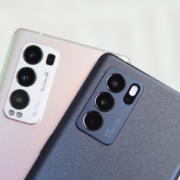Lenovo is redefining the lifecycle of electronic devices by integrating AI into its refurbishment process, thereby reducing waste and costs. The company’s commitment to circular economies is evident in its Lenovo Certified Refurbished program, which revitalises used devices. The introduction of AI technologies, including edge computing, IoT sensors, and machine learning, has significantly enhanced the efficiency of identifying and repairing device issues.
The AI-powered refurbishment initiative streamlines the labour-intensive process of manual inspection, leveraging data to improve product design and lifecycle management. Lenovo’s AI readiness is built on four pillars: ensuring data security, empowering employees through AI augmentation, defining clear technology objectives supported by machine learning models, and transforming processes to optimise diagnostics and predictive maintenance.
Lenovo’s approach has yielded impressive results, with 70% of discarded laptops found to have the potential for a doubled lifespan upon refurbishment. Currently, 71% of collected devices are either refurbished or repurposed for parts. The AI solution has also led to a 116% increase in efficiency and significant cost savings, demonstrating the company’s commitment to sustainable practices and innovation.
In summary, Lenovo’s AI-driven refurbishment not only supports a circular economy but also delivers tangible benefits in terms of efficiency and cost-effectiveness. This initiative underscores Lenovo’s dedication to sustainability and its role in shaping a more responsible future for technology consumption.
Aaron Zhang, ISSC Reverse, Repair, Refurbish Director at Lenovo commented that AI “… holds tremendous potential to enhance the efficiency of our sustainable refurbishment initiatives” and that it also “promises to deliver faster access to insights gleaned from the refurbishment process”.











